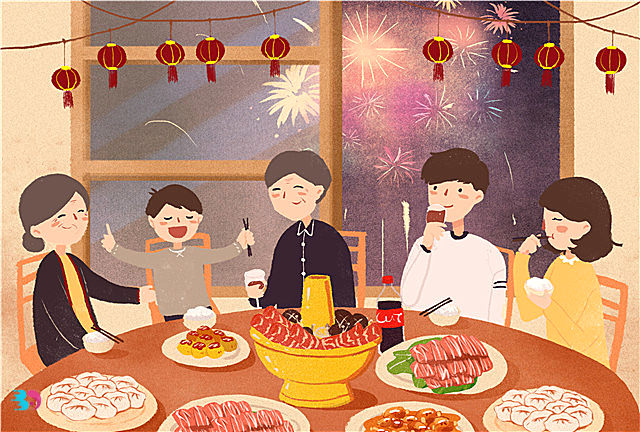迎门墙(迎门墙的造型大全)
本文目录一览:
中华豪门—迎门墙与祸起萧墙的渊源
本期编辑/开鸿顺
KaiHongShun Studio
————————
庭院深深,深几许。在我们中国的庭院里,进入大门,先看到的就是迎门墙。
The courtyard is deep. In our Chinese courtyard, the first thing you see when you enter the gate is the wall facing the gate.
伏羲之先天八卦图
迎门墙的起源和说法、作用不一,直白点是让内院不至于让外人一览无余,另外也符合中国古代的朦胧美的概念,另外还有就是风水学中,大门乃“气”之入口,是家财、人丁兴旺之根本,迎门墙可聚敛这种“气”,使“气”内敛。
The origin, statement and function of the Yingmen Wall are different. The straight white point is to keep the inner courtyard from being seen by outsiders. It also conforms to the concept of hazy beauty in ancient China. In addition, in Fengshui, the gate is the entrance of "Qi", which is the basis of wealth and prosperity. The Yingmen Wall can gather this "Qi" and make "Qi" restrained.
所以说,影门墙可以起到一定的间隔,正房门与大门隔离屏障,一般古典庭院和农村正式建筑、套院都有这样的建筑墙。影门墙上面有的是图画,一般寓意都是积极向上之类的,带对联的也是如此。因此,影门墙是中国古典建筑的标志性建筑之一。
Therefore, the shadow gate wall can play a certain interval. The main house door and the gate are isolated. Generally, classical courtyards, formal buildings in rural areas and courtyard suites have such walls. There are many pictures on the wall of the Shadow Gate, which are generally positive, and so are those with couplets. Therefore, the Shadow Gate Wall is one of the landmarks of Chinese classical architecture.
而祸起萧墙指的是:萧墙——古代宫室内当门的小墙,指祸乱发生在家里,比喻内部发生祸乱、内讧行为的地方。
The wall of trouble refers to: Xiaoqiang, the small wall in the ancient palace, refers to the place where trouble occurs at home, which is a metaphor for the place where trouble and internal strife occur.
在《论语·季氏》中记载曰:“吾恐季孙之忧,不在颛臾,而在萧墙之内也”。
It is recorded in The Analects of Confucius, Ji Shi: "I am afraid that Ji Sun's worries are not in Zhuan Yi, but in Xiao Qiang.".
这就是,祸起萧墙典故之出处,讲解的是孔子与季家兄弟的故事,故事的内容大概如下——
This is the source of the allusion, which explains the story of Confucius and the Ji brothers. The content of the story is as follows——
原文如下:“今由与求也,相夫子,远人不服而不能来也;邦分崩离析而不能守也;而谋动干戈于邦内,吾恐季孙之忧,不在颛臾,而在萧墙之内也。”
The original text is as follows: "Today, we are in harmony with Qiuye. Master Xiang, a distant man cannot come here because he is not convinced. The country is broken up and cannot defend it. But we are planning to fight in the country. I am afraid that Ji Sun's worries are not in Zhuan Yi, but in Xiaoqiang."
说的是:春秋末年,鲁国的掌握在孟孙氏、叔孙氏和季孙氏三家大夫之手,颛臾是鲁国的附属国,靠近季孙氏的封邑。季孙氏是公族中最有权势的,他害怕鲁哀公借助颛臾人的力量夺回权力,于是决定派兵攻打颛臾。在即将要攻打附庸国颛臾的时候,意见出现分歧。于是冉有、子路两人参见孔子,说道:“季氏将对颛臾使用武力”。
It is said that in the late Spring and Autumn Period, the political power of the State of Lu was controlled by three officials, namely, the Mensun family, the Shusun family and the Jisun family. Zhuanxi was a subsidiary state of the State of Lu, close to the capital granted by the Jisun family...
孔子说:“冉求!这难道不应该责备你吗?先王曾经任命颛臾主持东蒙山的祭祀,而且它处在我们鲁国的疆域之中,这正是跟鲁国共安危的藩属,为什么要去攻打它呢”?冉有说:“那个季孙要这么干,我们两人都不想呢”。
Confucius said, "Ran Qiu! Shouldn't you be blamed? The former king once appointed Zhuan Yi to preside over the sacrifice of Dongmeng Mountain, and it is located in the territory of the State of Lu. It is a vassal who shares security with the State of Lu. Why should we attack it?"? Ran You said, "We both didn't want Sun to do that that season.".
孔子说:“冉求!贤人周任有句话说:“能够施展自己的力量就任职;如果不行,就该辞职。比如瞎子遇到危险,不去扶持;将要摔倒了,不去搀扶,那又何必用助手呢?况且你的话错了。老虎犀牛从栅栏里逃了出来,龟壳美玉在匣子里毁坏了,这应责备谁呢”?冉有说:“颛臾,固若金汤城墙坚固,而且离季孙的采邑费地很近。
Confucius said, "Ran Qiu! A wise man named Zhou Ren said," If you can exert your strength, you can serve; if you can't, you should resign. For example, if the blind man is in danger, he will not support him; if he is going to fall down, he will not help him. Why use an assistant? Besides, your words are wrong.
现在如不把它占领,日后一定会给子孙留下祸害。”孔子说:“冉求!君子讨厌那种避而不说,自己贪心却一定另找借口的态度。我听说过:无论是有国的诸侯或者有封地的大夫,不必担心财富不多,只需担心财富不均;不必担心人民太少,只需担心不安定。若是财富平均,便没有贫穷;和平相处,便不会人少;安定,便不会倾危。
If we do not occupy it now, we will surely leave disaster to our descendants in the future. " Confucius said: "Ran Qiu! A gentleman hates the attitude that he avoids saying, but he is greedy but must find another excuse. I have heard that whether he is a vassal or a feudal official, he does not need to worry about wealth, but only about wealth inequality...
做到这样,远方的人还不归服,便发扬文治教化招致他们。他们来了,就得使他们安心。如今你们俩辅佐季孙,远方的人不归服,却不能用文治教化招致;国家支离破碎,却不能保全;反而想在国境以内使用武力。恐怕是季孙的忧愁不在颛臾(一个边区的小国家),而是在萧墙之内啊!在季家自己兄弟之间也!”孔子说这个话不久。
In this way, people from far away will not surrender, and they will carry forward the culture and education to attract them. When they come, they must be reassured. Now you two are assisting Ji Sun. If people from afar don't surrender, they can't be induced by culture and education.
后来季家兄弟仍然听而不闻,置之不理,依然我行我素,各持己见。果然发生到濒临灭亡的窘境。所以后来,人们就把内部发生祸乱的现象、行为,用“祸起萧墙”这句话来形容。
Later, the Ji brothers still ignored and ignored them. They still went their own way. As expected, it was on the verge of extinction. So later, people described the phenomenon and behavior of internal disasters with the phrase "disasters rise and walls fall".
后来在《后汉书》中就引用了这一典故:“此皆衅发萧墙,而祸延四海也。”这里的“萧墙”就是影壁或迎门墙,南方人称为“照壁”,在北方称之为"迎门墙"。
Later, this allusion was quoted in the Book of the Later Han Dynasty: "This is all a provocation against Xiao Qiang, and the disaster extends all over the world." Here, the "Xiao Qiang" is the screen wall or Yingmen wall, which is called the "screen wall" in the south and the "Yingmen wall" in the north.
追溯源头,影壁由来已久,古时候人们认为自己的宅院中,会不断有阴气来往走过。如若这魂魄是自己已故先人,那是被允许的,但是如果是孤魂野鬼,混进宅院,就要给自己带来灾祸。所以在影壁上挂上镜子,鬼魂看到自己的影子,会被吓走(也称照妖镜)。
Tracing back to the source, the screen wall has a long history. In ancient times, people believed that there would be a constant flow of Yin Qi in their homes. If the soul is his deceased ancestors, it is allowed, but if he is an orphan and sneaks into the house, he will bring disaster to himself.
当然,影壁也有其功能上的作用,那就是遮挡住外人的视线,即使大门敞开,外人也看不到宅内。另外,影壁还可以烘托气氛,增加住宅气势,更显内院幽雅静谧的气息。
Of course, the screen wall also has its functional role, which is to block the view of outsiders. Even if the door is open, outsiders can not see the house. In addition, the screen wall can also set off the atmosphere, increase the momentum of the house, and show the elegant and quiet atmosphere of the inner courtyard.
那么,影壁(迎门墙)建多高好呢?经小编细翻古建书籍得出:应该是一个标准身高的人,站到你的大门外边平视,且看不到墙后的东西为原则;一般为两米左右,这取决于你的大门和影门墙的距离、高度,既要整体效果和谐,又要有美的视觉。
So, how high should the screen wall (wall facing the door) be built? It is concluded through careful reading of ancient architecture books that you should be a man of standard height, stand outside your door and look at it face to face, without seeing anything behind the wall; Generally, it is about two meters, which depends on the distance and height between your gate and the shadow gate wall.
后来,人们用这一典故,就表示内部祸乱之意,《后汉书》中就引用了这一典故:“此皆衅发萧墙,而祸延四海也。”
Later, people used this allusion to express the meaning of internal chaos, which was quoted in the Book of the Later Han Dynasty: "This is all a provocation against the wall, and the disaster extends all over the world."
萧墙,是古代国君宫室大门内(有人说是大门外)面对大门的门屏,又称“塞门”、“屏”,和后代民居大门的照壁有点相似。
Xiaoqiang is a screen facing the gate inside the gate of the ancient imperial palace (some people say it is the main gate), also known as the "gate" or "screen", which is somewhat similar to the screen wall of the gate of the folk houses of later generations.
在古代萧墙的作用,也是遮挡外来人的视线,防止外人向大门内窥视,臣子要到宫室里晋见君王,进宫室首先要经过萧墙。所以萧墙之内也可以说,就是宫内。
In ancient times, the role of Xiao Wall was also to block the vision of outsiders and prevent outsiders from peeping into the gate. When courtiers wanted to meet the king in the palace, they had to pass Xiao Wall first. Therefore, it can also be said that inside the Xiaoqiang is the palace.
祸起萧墙,萧墙就是内墙,表明引起祸事的根源,不是外部因素而是内在分歧、内讧——祸起萧墙可破金汤(固若金汤)也。
A wall of woes is an internal wall, which shows that the root cause of disasters is not external factors but internal differences and internal strife - a wall of woes can break the golden soup.
所以和谐相处,和谐社会,以人为本,稳定发展,公平公正的以仁孝治国安邦,才是最重要的。
Therefore, harmonious coexistence, harmonious society, people-oriented, stable development, fair and just governance with benevolence and filial piety is the most important.
猜你喜欢
热门推荐
推荐阅读
热门标签
热门精选
- 07-10男女生搞基(搞基是什么意思)
- 08-02刀肖是哪几肖(刀肖指什么生肖)
- 07-08藏历理发(什么日子理发最吉利)
- 07-1763年出生的今年多大(63年属兔的今年多大)
- 07-0600年今年多大(00出生的今多大)
- 07-06大林木是什么生肖(今期特马大林木)
- 06-26十灵时(什么叫十灵时出生的人)
- 06-30属猪多大了(生肖猪今年几岁)
- 07-11今年属牛的多大(生肖牛今年几岁)
- 07-0138年属什么生肖(38年是什么生肖)
出生命理最新文章



- 01-19迎门墙(迎门墙的造型大全)
- 01-19广州个人摇号个人登录(广州个人摇号个人登录帐号是什么)
- 01-19成年身份证号码游戏实名认证(成年身份证号码游戏实名认证2023)
- 01-19正印大运(正印大运的特点)
- 01-192月7日是什么星座(2月7日是什么星座女生)
- 01-19免费测名打分(免费测名打分最准确的软件)
- 01-19郑博士最新一周生肖运势(郑博士最新一周生肖运势4.24-4.30)
- 01-19烧香的讲究(上香的规矩和忌讳)
- 01-19唐嫣八字(唐嫣八字命理)
- 01-19八重齿(八重齿是什么牙齿图片)












